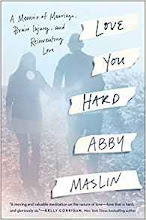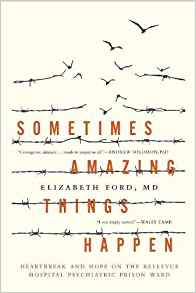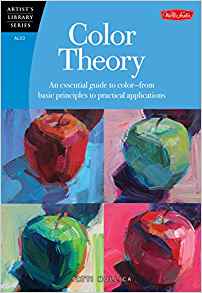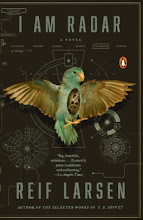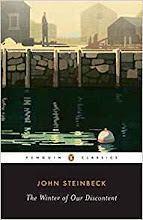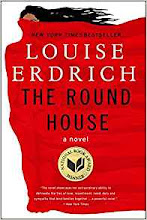What a freeing moment for me as a writer.
At the reception afterwards, standing in front of him at the book-signing table, I said, "It was great to hear you say that, because at the summer writing workshops I attend, someone always says, 'Well, I don't believe the character would do that.'"
Ford looked up and said, "Well, now you know the answer!"
(Allow me a brief digression to share this with you: I'm shaking hands with celebrated novelist Richard Ford, yes, that Richard Ford, who wrote Independence Day, the book that won both the Pulitzer Prize AND the PEN/Faulkner Award for Fiction - the first time any book had won both - and he is signing that same lauded book, writing a personal greeting to me...and I am nervous, tripping over my tongue, telling him I write fiction, too - how embarrassing, did I just tell him that?! - and he looks up at me and asks where I go for my summer workshops, and I say, "Provincetown, the Fine Arts Work Center," and he says, "Oh, yes!" and then goes back to finishing my inscription. (He lives in New England, after all.) He is somewhat intimidating, tall and grey-haired, such a literary luminary, but it's mostly his eyes - those blue-grey eyes that are so pale you can almost see into his head, like maybe you could catch a glimpse of some of his ideas, some of the magic and style of his writing, though it's almost frightening to look. But I'm completely won over by his warmth, so genuine and patient, the way he looks right at you when he's talking to you, the way he takes his time with you, even though he's never seen you before, and when he says, "It's nice to meet you" and "thank you for coming," he takes his time, and you get the strong feeling he really means it - as if he hasn't already said it to the twenty people before you and as if he isn't going to say it to the fifty people behind you...as if he's not a 70 year-old famous writer who could probably use the rest more than you but won't get to bed until long after you. Despite his austere publicity photos, Richard Ford is one very nice man.)
Why do writers always challenge other writers in questioning the behavior of their characters? Sure, actions usually need the support of motivation, but sometimes people do stuff seemingly out of left field. Would anyone have thought the following plausible?
- A young boy considered a "normal kid" by the neighbors goes on a slashing spree one day at school, severely injuring many, and gets charged as an adult
- A young couple takes their baby and toddler child on a boat into the open ocean, intending to sail around the world
- A grad student waiting for his wife to travel cross-country to join him in married student housing drops out of grad school and returns home to help her raise the child fathered by his (former) best friend
And do we want to write or read only stories in which everyone behaves as expected and no one does anything surprising? ZZZZZZZZZ Not me!
Thanks, Richard Ford, for giving me the freedom to let my characters do strange, inappropriate, fascinating things that keep the reader turning pages!
PHOTO CREDIT: Amazon.com





